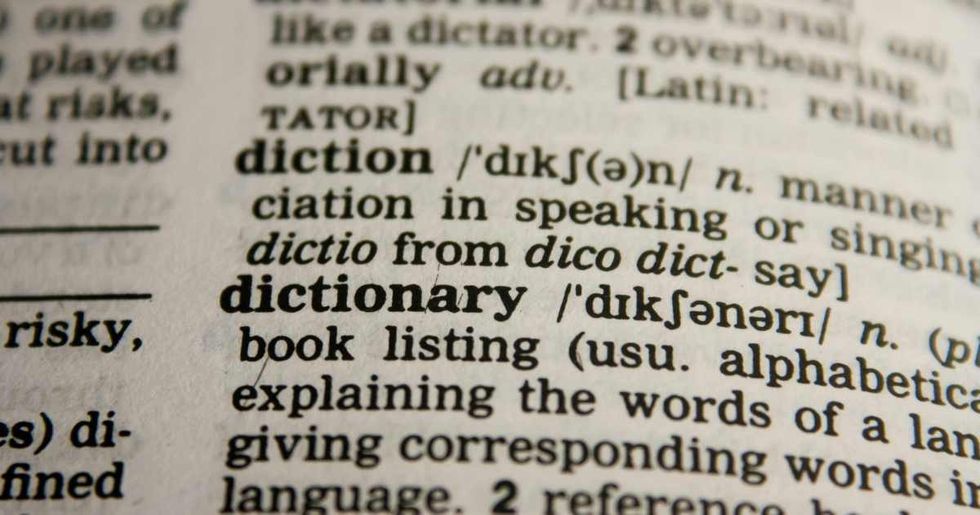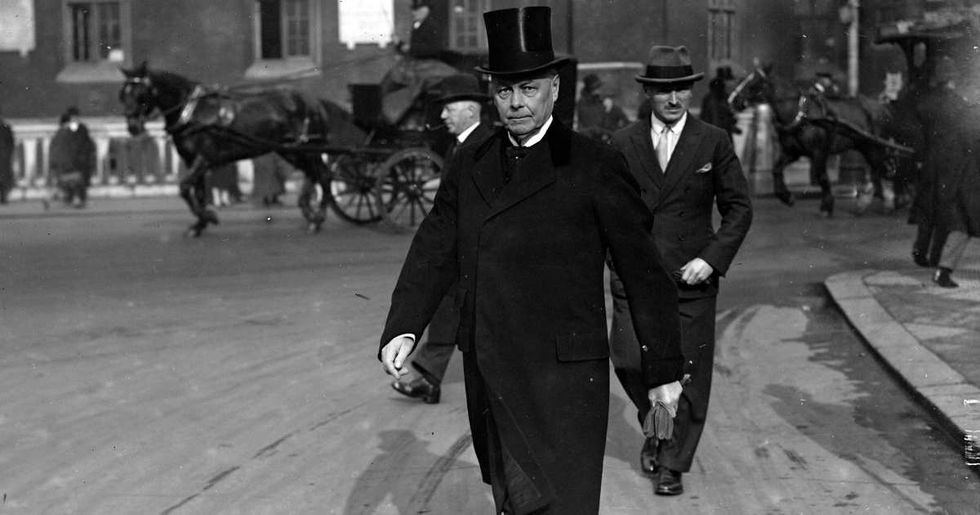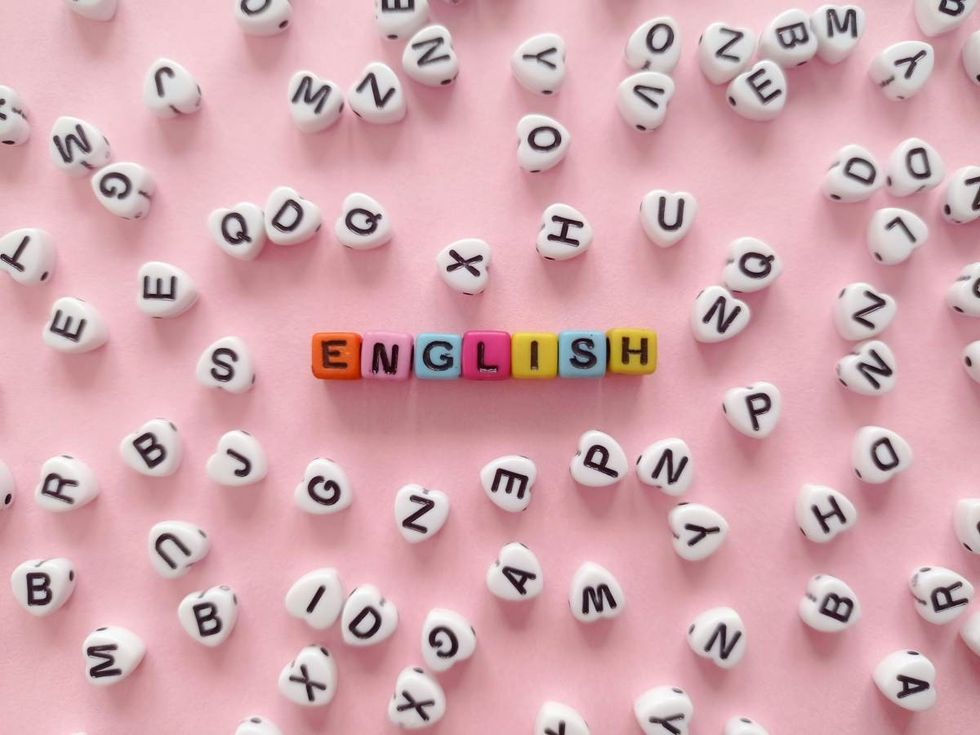Did you know English once had a precise word for "the day after tomorrow?" The language is renowned for its rich vocabulary and expressive capability and has evolved immensely over the centuries. Among its many terms, it once boasted a word called "overmorrow." This now-obsolete word is mainly derived from two words- "over" and "morrow" meaning "after" and "the following day," respectively. People on the social media platforms have recently rediscovered the word, and have expressed their reaction on their latest find, reported IFLScience.

The word "overmorrow" has a long history attached to it. It was first recorded in the first half of the 16th century when it was attested in Coverdale's Bible translation of 1535, which is the first English translation of the holy book. There, it was initially spelled as "ouermorow." The mention read as, "Then spake Tobias unto the virgin, and said: Up Sara, let us make our prayer unto God today, tomorrow, and overmorrow" which translates to modern language as "For these three nights will we reconcile ourselves with God, and when the third holy night is past, we shall join together in the duty of marriage."

Additionally, Coverdale also contains another archaic term for the day before yesterday which was spelled as "yeryesterdaye." The Bible mentions, "And Iacob behelde Labans countenaunce, and beholde, it was not towarde him as yesterdaye and yeryesterdaye (sic)."
The word "overmorrow," however, fell out of common use pretty quickly, before the end of the 16th Century, with people preferring to use four words instead of one. The most recent use of the word was dated almost a century back when Sir W. Joynson-Hicks said, "We can go not overmorrow, but on Thursday" during one debate in the UK Parliament in 1925.

The archaic word may have moved out of the English dictionary but other languages have a similar word for this century-old term. In German, the word "übermorgen" is used for 'day after tomorrow' whereas French uses "surlendemain" for the same.
@wylfcen, an X user, posted a short status expressing how there is an older word for the term "the day after tomorrow." The post read, "English used to have a punchier word for ‘the day after tomorrow’: overmorrow, from over- ‘after’ + morrow. This existed alongside ‘ereyesterday,’ an old word for the day before yesterday." Users flooded the comment section with their thoughts with many talking about how it was brand new information for them. @pgoings wrote, "Definitely going to work those into my vocabulary!" Another user, @gwilliagh, commented, "I wonder how useful words die out."
The invention of the word had even spread to other social media platforms. On TikTok, @mags_hh posted a brief clip expressing how she was shocked to find out that this term existed. The caption of the post read, "In Italy, we say “dopodomani” and it always bugged me that in English I have to say so many words “The day after tomorrow” is so long! Why “Overmorrow” is not a thing anymore? It’s beautiful!!!" On the other hand, many users have shared that their respective languages also feature a specific word for "the day after tomorrow." which sounds similar to the English word.



















 Pexels | Photo by Andrea Piacquadio
Pexels | Photo by Andrea Piacquadio
 An Atlantic grey seal looking at the camera underwater. (Representative Image Source: Getty Images | Mark Chivers)
An Atlantic grey seal looking at the camera underwater. (Representative Image Source: Getty Images | Mark Chivers) A grey seal swims up to a scuba diver. (Representative Image Source: Getty Images | Huw Thomas)
A grey seal swims up to a scuba diver. (Representative Image Source: Getty Images | Huw Thomas) A Grey seal nibbles at the hood of a scuba diver. (Representative Image Source: Getty Images | Bernard Radvaner)
A Grey seal nibbles at the hood of a scuba diver. (Representative Image Source: Getty Images | Bernard Radvaner)
 Image Source: Seth Rogen and Lauren Miller Rogen co-host the HFC Austin Brain Health Dinner on September 30, 2023, in Austin, Texas. (Photo by Rick Kern/Getty Images for Hilarity for Charity)
Image Source: Seth Rogen and Lauren Miller Rogen co-host the HFC Austin Brain Health Dinner on September 30, 2023, in Austin, Texas. (Photo by Rick Kern/Getty Images for Hilarity for Charity) Image Source: Seth Rogen and Lauren Miller Rogen attend the 95th Annual Academy Awards on March 12, 2023 in Hollywood, California. (Photo by Arturo Holmes/Getty Images )
Image Source: Seth Rogen and Lauren Miller Rogen attend the 95th Annual Academy Awards on March 12, 2023 in Hollywood, California. (Photo by Arturo Holmes/Getty Images ) Image Source: YouTube |
Image Source: YouTube |  Image Source: YouTube |
Image Source: YouTube | 
 Image Source: In this handout photo provided by the National Science Foundation, the Event Horizon Telescope captures a black hole at the center of galaxy M87 in an image released on April 10, 2019. (National Science Foundation via Getty Images)
Image Source: In this handout photo provided by the National Science Foundation, the Event Horizon Telescope captures a black hole at the center of galaxy M87 in an image released on April 10, 2019. (National Science Foundation via Getty Images)
 Representational Image Source: Pexels I Photo by Nataliya Vaitkevich
Representational Image Source: Pexels I Photo by Nataliya Vaitkevich Representative Image Source: Pexels | Kampus Production
Representative Image Source: Pexels | Kampus Production
 Image Source: Destroyed vehicles lie near the rubble after the earthquake and tsunami devastated the area on March 16, 2011, in Minamisanriku, Japan. The 9.0 magnitude strong earthquake struck offshore on March 11 at 2:46 pm local time, triggering a tsunami wave of up to ten meters which engulfed large parts of north-eastern Japan. (Photo by Chris McGrath/Getty Images)
Image Source: Destroyed vehicles lie near the rubble after the earthquake and tsunami devastated the area on March 16, 2011, in Minamisanriku, Japan. The 9.0 magnitude strong earthquake struck offshore on March 11 at 2:46 pm local time, triggering a tsunami wave of up to ten meters which engulfed large parts of north-eastern Japan. (Photo by Chris McGrath/Getty Images) Representative Image Source: Pexels | Pixabay
Representative Image Source: Pexels | Pixabay Representative Image Source: Pexels | Stuart Pritchards
Representative Image Source: Pexels | Stuart Pritchards
 Image Source: Musician Keith Urban and actress Nicole Kidman arrive at the 2009 American Music Awards at Nokia Theatre L.A. Live on November 22, 2009 in Los Angeles, California. (Photo by Jeffrey Mayer/WireImage)
Image Source: Musician Keith Urban and actress Nicole Kidman arrive at the 2009 American Music Awards at Nokia Theatre L.A. Live on November 22, 2009 in Los Angeles, California. (Photo by Jeffrey Mayer/WireImage) Image Source: Keith Urban and Nicole Kidman attend The 2024 Met Gala on May 06, 2024 in New York City. (Photo by John Shearer/WireImage)
Image Source: Keith Urban and Nicole Kidman attend The 2024 Met Gala on May 06, 2024 in New York City. (Photo by John Shearer/WireImage) Image Source: Musician Keith Urban and actress Nicole Kidman arrive at the Oscars on February 24, 2013 in Hollywood, California. (Photo by Jeff Vespa/WireImage)
Image Source: Musician Keith Urban and actress Nicole Kidman arrive at the Oscars on February 24, 2013 in Hollywood, California. (Photo by Jeff Vespa/WireImage)
 Representative Image Source: Pexels | August de Richelieu
Representative Image Source: Pexels | August de Richelieu Representative Image Source: Pexels | August de Richelieu
Representative Image Source: Pexels | August de Richelieu Representative Image Source: Pexels | Djordje Vezilic
Representative Image Source: Pexels | Djordje Vezilic Representative Image Source: Pexels | Fauxels
Representative Image Source: Pexels | Fauxels